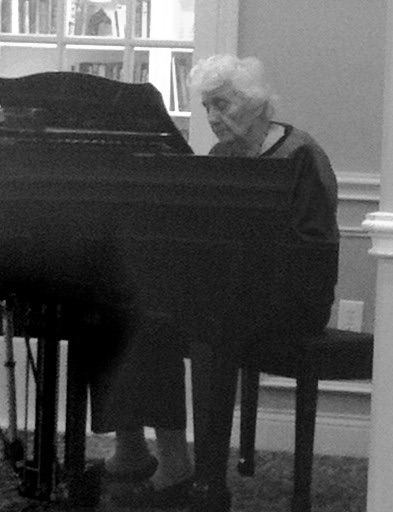The memories still hung like strands of gossamer, but for how long?
I don’t know the exact day and time when she took the first step to leave.
Too many other distractions and family drama clouded the scene. Most days, I try not to dwell on the last years of my mother’s life. Her slow walk with Alzheimer’s brought out the best and the worst in her and in myself.
Catchlight took me back to the pain
When Brooke Adams Law described her novel during her weekly writing circle, I cringed. How could I support her book launch if I couldn’t bear to read about a family facing their mother’s Alzheimer’s diagnosis?
Why would I ever want to read more about the disease that robbed my mother of her memories and her life? Not only that but a story about a family that sounded vaguely similar to my own.
“When Katherine Keene is diagnosed with Alzheimer’s disease, her four grown children must grapple with how to care for her – and how to remake their relationships with each other. And then there’s the secret that threatens their family’s very identity. Will the Keenes find healing and reconciliation – or implode from within?” (Catchlight Back Cover Copy)
Reluctantly, I began reading.
I found myself in the pages. The dutiful daughter patiently caring for her mother. The agitated sibling resenting the burden and loss of my life.
Brooke lays out all the emotions that swirl uncontrolled when an individual, a family, comes face-to-face with their personal and collective anguish.
Nothing prepares you for the helplessness you feel for the one you love and yourself. In Catchlight, I saw for the first time, all the emotions, shame, guilt, and love that seemed to swallow me up until I could only see this day, this moment.
My mother slipped away quietly leaving behind a sadness that has no words.
“Grief, I found myself thinking, is a mute sense of panic.” —Marion Roach
Who are you without your memories?
“Where’s my purse? I can’t find my purse. I know someone at church stole it when I wasn’t looking. Why would someone in the choir take my purse?
This was the first of many calls I received shortly after my dad’s death in 2005. Strange exchanges that I attributed to a widow’s grief. Losing her life’s partner of over 55 years seemed to have left my mother fragile and unsteady.
When my parents engaged in one of their many vocal battles, weakness would not describe my mother. Her strength and determination fell second only to her stubbornness.
As she continued to step slowly away, I wanted her back. I wanted to scream hoping the sound of my voice would pull her out of the silent dissent.
“I want to tell you how much I miss my mother. Bits of her are still there. I miss her most when I’m sitting across from her.”
—Candy Crowley, former CNN Chief Political Correspondent
I am angry.
I spent many days in anger. Angry that my mother lost all interest in me or my family. The anger consumed me when I had to clean her soiled clothes. My anger raged when I couldn’t find the words to explain the emotions that lingered below the surface every hour of every day.
The anger would subside, and I focused again on caregiving. Sitting patiently, taking her for a drive, stopping for ice cream, I gave her the space to live in the now.
Always the seeker of knowledge and understanding, I read all I could find about Alzheimer’s. How did she arrive at this most difficult state with memories floating in and out until they disappear, leaving only this moment?
I learned from Nancy Mace in The 36-Hour Day that reminding my mother of what she can’t remember only exacerbates her frustration and mine.
“As the dementia progresses and the person develops trouble with coordination and language, it is easy to forget his need to experience pleasant things and to enjoy himself. Never overlook the importance of hand-holding, touching, hugging, and loving.”
We learn to dance in the moment—her moment—as if this time and place held the most precious memory.
I knew we would never laugh as we watched old black and white movies. No more conspiratorial secrets or polishing our nails bright red. Her long elegant fingers and washed in crimson punctuated the air as she waved her hands.
My mother could lighten the room with her tales of mischief with her younger sister. She could make you laugh when you felt the world caving in around you. Her high school classmates named her the “most jovial.”
Her childhood had become the present. She greeted me one day ready to leave to go shopping. Quickly, I scanned my thoughts for a safe and close place to shop—maybe the one where everything was only a dollar. Instead, she became anxious.
“We must get all my school supplies. School starts tomorrow, and I don’t have any pencils or writing tablets. How will get my books? Please, can we go, now?”
My heart ached as I took her hand in mine to shop and get ready for the first day of school. But by the time we pulled into the parking lot, she had forgotten about pencils and crayons.
She picked out a small angel figurine, and I took a deep breath and another. Alzheimer’s is not about the past.
“It must be the nowness of this disease that, in stealing the past and obscuring the future, forces us, the healthy and the ill, to stay in the moment.”
― Lauren Kessler, Dancing with Rose: Finding Life in the Land of Alzheimer
Photographs hold memories and mysteries.
Laura, one of the siblings and main characters in Catchlight, captures the last months of her mother’s life in photographs. I thought of all the photos I took of my mother in those final years. Would the photos reflect back the woman of my childhood, or would they leave me with little more than a shell of a once lived life?
I hadn’t thought of those photos since my mother’s funeral. They became part of her life’s story in the brief video at the wake. Moments in time. Eighty-two years condensed in a few photographs.

My mother sits at the piano in one of the last photos I have of her. She loved singing and music. We sang together creating harmonies with the voices that bound us as mother-daughter, friend, and caregiver.
“I’d like to go home now,’ she said softly. She hoped someone would show her the way.”
― Jenny Downham, Unbecoming
Eight years have passed, and I still have the urge to pick up the phone, hear her voice, and spend time sharing the trivial everyday moments that fill our days—and life.
“If you knew you were
going to lose your memory
but you could choose five things
you’d never forget, what would they be—
a certain face, a taste, a scent,
a touch; how deep
in this, the middle
of your life?”
― Kristen Henderson, Of My Maiden Smoking
Brooke Adams Law’s debut novel, Catchlight, was the winner of the 2019 Fairfield University Book Prize.
And always—



Leave A Comment